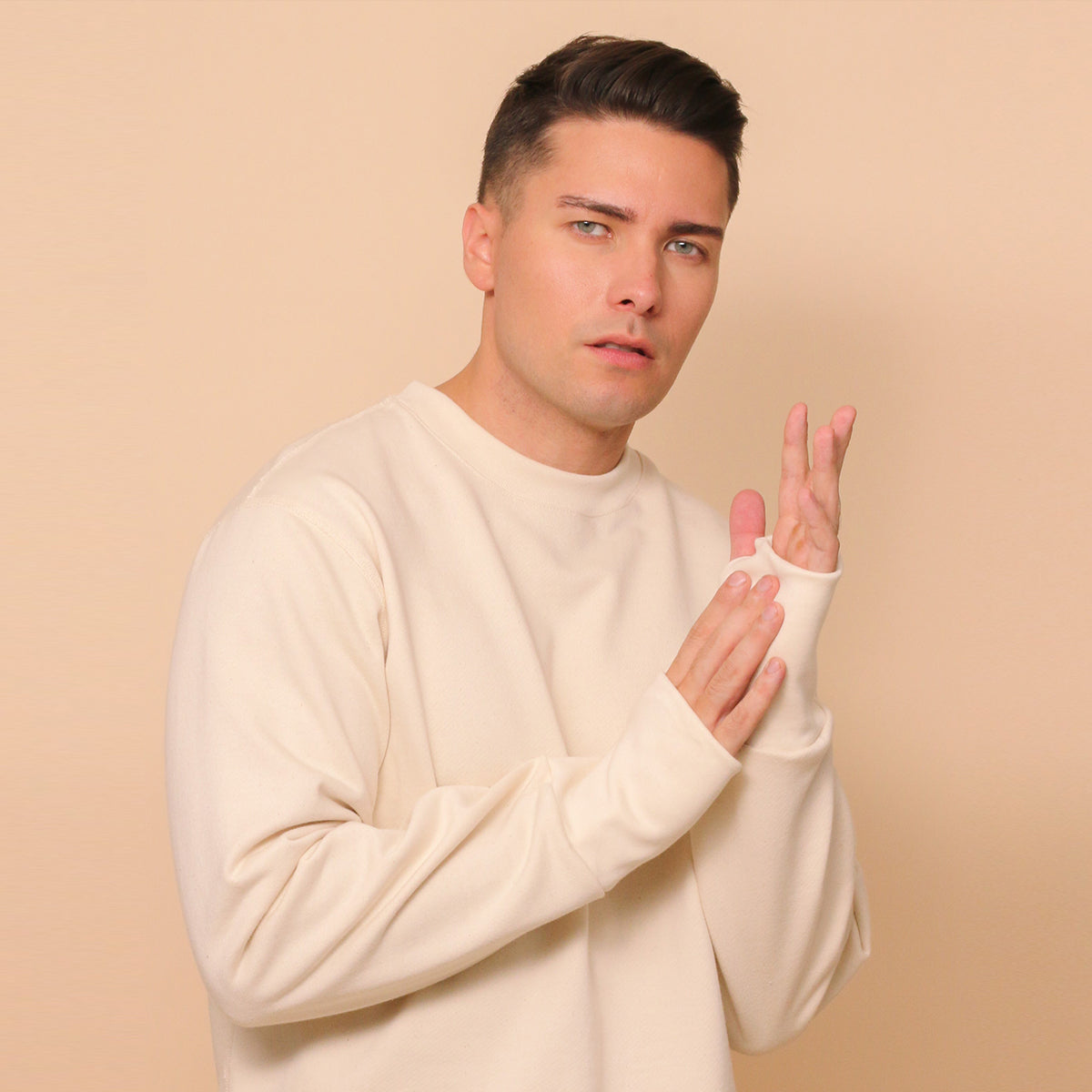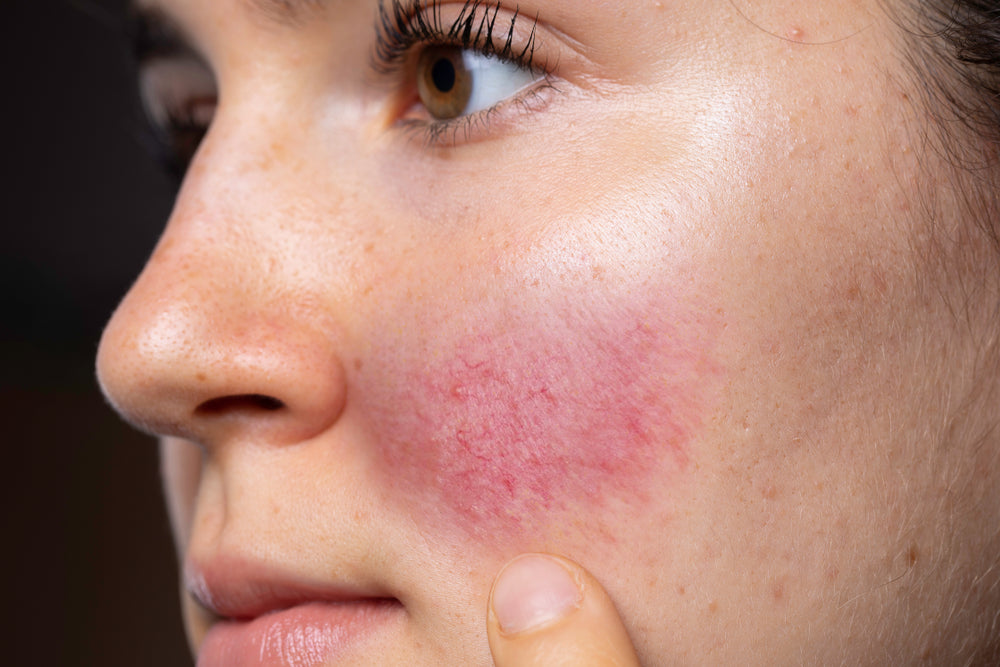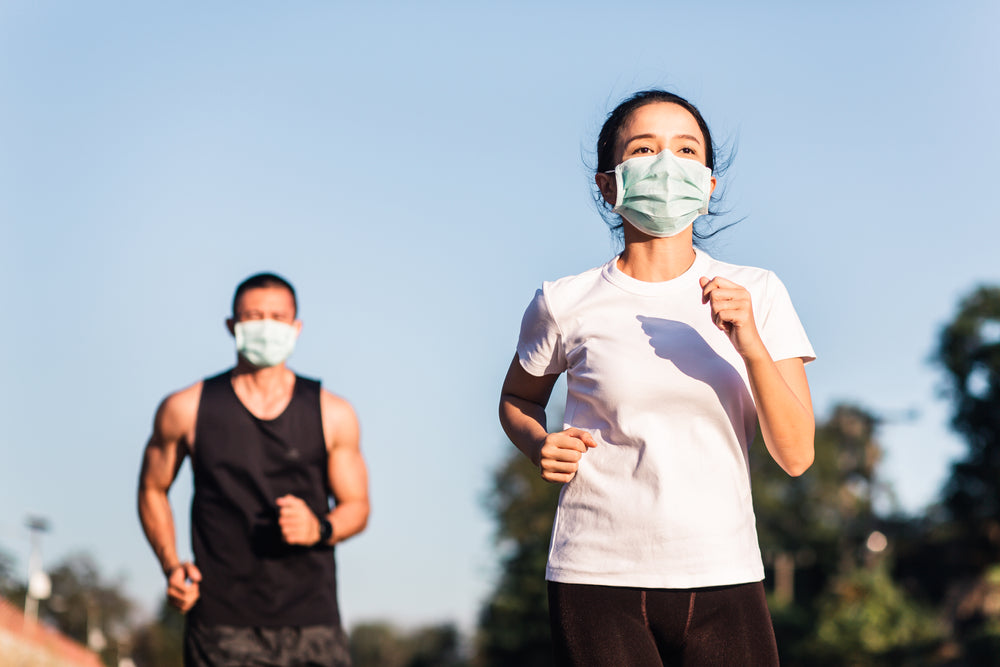Blushing isn’t always a good sign after all, especially during this pandemic.
Aside from the "maskne" phenomenon, the prolonged wearing of protective face masks can also exacerbate a less talked about skin condition on the face called rosacea.
Defined by MayoClinic, rosacea is a skin condition that causes redness and visible blood vessels in a person's face. People with this troublesome skin condition often notice redness on their cheeks, nose, chin, and forehead.
The symptoms, which include stinging and burning sensation, dry skin, larger pores, broken blood vessels, facial redness, swollen red bumps, eye problems, and enlarged nose, usually go away on their own but some may flare up for weeks to months.
Currently, there's no cure for rosacea. However, proper treatment and prevention steps can reduce the signs and symptoms, but how does the pandemic aggravate rosacea flare-ups anyway?
WHEN FRICTION, HEAT, AND MOIST BLEND
Since the early months of the pandemic, dermatologists already saw an uptick in masks-induced rosacea. In fact, according to a report, stress, anxiety, or a sudden change in routine like the pandemic are prevalent triggers of rosacea.
When the body receives stress, chemicals like cortisol and adrenaline are released, which then start an inflammatory response on the skin. Apart from the psychological stress, the top culprit perhaps is the face mask you’re using right now.
“When you blend trapped breath, sweat, and oil, you end up with a hot and moist environment under your mask. This often leads to a greater risk of irritation,” another article reported. The mixture of friction, heat, and moisture under the mask makes people more susceptible to rosacea flare-ups and acne as well.
Although the mask-aggravated rosacea can be a nuisance to deal with, it should not discourage you from mask-wearing to better protect yourself against COVID-19. Try these 7 simple steps to keep your skin healthy, clean, and protected when wearing face masks.
1. DROP THE MAKE-UP ROUTINE
Putting on makeup underneath a face mask will only clog your pores and lead to breakouts. Avoid heavy make-up when wearing a mask. If make-up is necessary, use products labeled “non-comedogenic” or those “won't clog pores" labels instead.
2. MAINTAIN A HEALTHY SKINCARE REGIME
Nourish and hydrate your skin with gentle skincare products. According to the American Academy of Dermatology Association, only use mild, fragrance-free cleanser and moisturizer to prevent breakouts.
3. EAT HEALTHY
Diet is also important in maintaining skin health. Other studies suggest that eating vegetables and foods with unsaturated fats and low in dairy and sugar may lead to healthier skin.
4. DRINK WATER DAILY
Drinking enough water helps the body and your skin get rid of toxins. It also improves skin tone, giving your skin a more radiant glow.
5. TAKE BREAKS
When wearing a mask, it's also important to let your skin breathe. Take off your masks for 15 minutes when you're in a safe place like:
- Outdoors, when you can stay at least six feet away from people
- Inside your car when you’re alone
- At home
6. CONTINUE YOUR TREATMENT PLAN
It's also critical to follow a treatment plan that your dermatologist created for you to keep your rosacea under control. If the flare-ups worsen, you may book a telemedicine appointment with your dermatologist so you can evaluate your options and manage your skin condition well.
7. WEAR THE RIGHT MASKS
When health is on the line, finding the right masks matters. According to AADA, use masks that have:
- Snug, but comfortable fit
- At least two layers of fabric
- Soft, natural, and breathable fabric, such as cotton, on the inside layer
Also, the AADA made it clear to avoid masks made with synthetic fabrics, such as nylon, polyester, and rayon since they are "more likely to irritate your skin and cause breakouts."
If you're finding it difficult to look for one, worry not. Cottonique fits those standards.
Our collection of hypoallergenic face masks, made with GOTS-certified, chemical-free 100% organic cotton fabric, are the perfect choice for people with skin allergies and multiple chemical sensitivities.
Visit our collection here to find the right masks for your delicate skin.
DISCLAIMER: The information presented on Cottonique is not, and will never be, intended to be a substitute for professional medical advice, diagnosis, or treatment. All content materials found on this site, from text, treatments, outcomes, charts, graphics, photographs, and study findings, are created and published for general informational purposes only. It should not, in any way, be construed as a standard of care to be followed by a user of the website.
Thus, readers are encouraged to verify any information obtained from this website with other accurate references and review all information regarding any medical condition or treatment with their physician. As Cottonique strives to help those with allergies live with better days, the hypoallergenic apparel brand encourages everyone to always seek the advice of your physician or other qualified health providers with any questions you may have regarding a medical condition.






Leave a comment
All comments are moderated before being published.
This site is protected by reCAPTCHA and the Google Privacy Policy and Terms of Service apply.